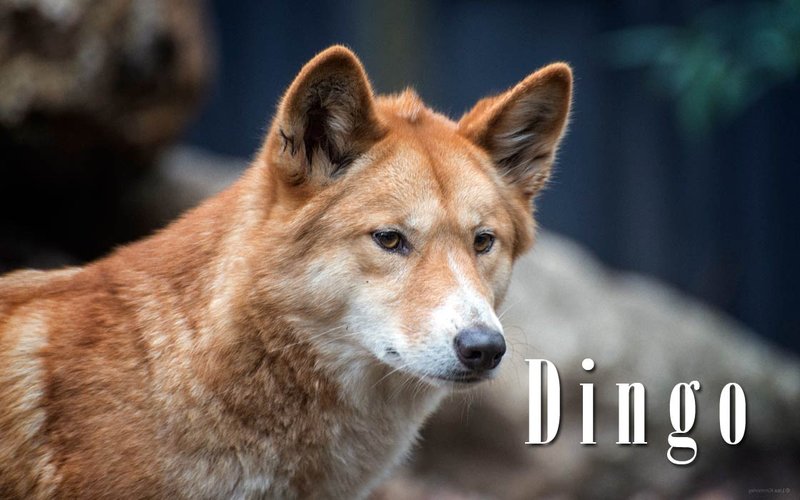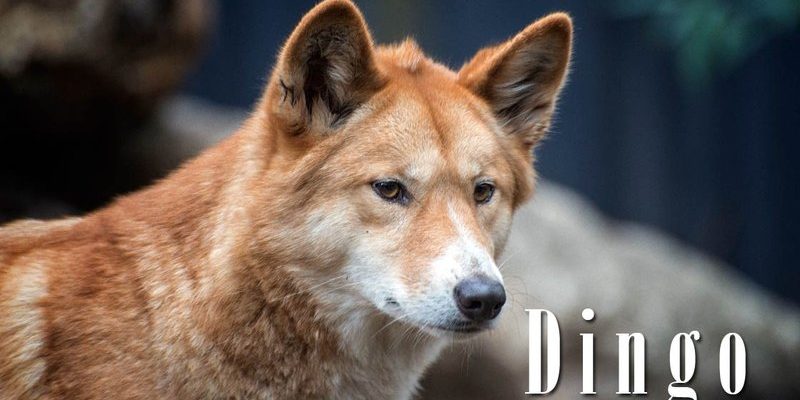
Imagine sitting in a café, chatting about the different types of wildlife. If someone asked you, “How smart is a dingo?” you might find yourself pondering its instincts and problem-solving skills. In fact, when comparing it to domestic dogs, dingoes exhibit unique intelligence shaped by their wild upbringing. They think on their feet, using their sharp minds to navigate and thrive in the challenging environments of Australia. So, let’s dig deeper and uncover what makes dingoes such fascinating creatures!
Understanding Dingo Intelligence
Dingoes are often labeled as “wild dogs,” but their intelligence runs deeper than just being a member of the canine family. They possess a unique combination of instincts and learned behaviors that help them survive in the wild. Before we delve into specifics, it’s essential to recognize that intelligence in animals often looks different than it does in humans.
Social Structure
Dingoes are social animals that often live in small family groups. Their social structure plays a significant role in their cognitive abilities. They communicate effectively with each other, using a range of vocalizations, body language, and even facial expressions to convey information. This social interaction is vital for coordinating hunting strategies and protecting their territory.
For instance, when hunting, dingoes will often work together. You might notice one dingo distracting a herd of kangaroos while another sneaks up from behind. This teamwork isn’t just about instinct; it involves planning and understanding each other’s roles.
Problem-Solving Skills
Dingoes also show impressive problem-solving skills. Think about when you’re faced with a tricky puzzle—sometimes, you have to try different approaches before finding the right solution. Dingoes do something similar. They’ve been observed using various techniques to catch prey, like digging or using their environment to their advantage.
In one study, researchers introduced obstacles to test the dingoes’ ability to navigate through challenges. The results were remarkable, showing that these animals could adapt their strategies based on the situation. This adaptability is a key hallmark of intelligence.
Learning and Adaptability
Let’s talk about how dingoes learn from their experiences. Like humans, they can adapt their behaviors based on prior interactions. This ability to learn can be crucial for survival. For example, if a dingo discovers that a certain area has abundant food, it will remember that location for future hunts.
Curiosity
Curiosity is another trait that sets dingoes apart. You might find them investigating new sounds, smells, or even objects in their environment. This curiosity helps them gather information, which can lead to better hunting or avoiding potential dangers. If a dingo stumbles across a unfamiliar animal or situation, it uses its instincts and previous experiences to assess the risk.
Survival Skills
Dingoes are incredibly resourceful. In harsh environments, they learn to conserve energy and maximize their efforts. This might mean changing their hunting times or choosing different prey types based on availability. The impactful shift in their behavior, when facing a new challenge, shows their capacity to adapt and thrive under pressure.
Emotional Intelligence
You might be pleasantly surprised to learn that emotional intelligence isn’t solely a human trait. Dingoes display signs of this unique form of intelligence, especially within their packs. They can sense the emotional states of others, which helps them create strong social bonds.
Empathy among Dingoes
When a pack member is in distress, other dingoes often respond with comforting behaviors. This empathetic behavior strengthens their social ties and fosters teamwork. Just like in a close-knit family, when one member is struggling, the rest rally around to support.
You might find it fascinating that this level of emotional intelligence plays a role in their hunting success as well. A dingo that understands its companion’s emotions is more likely to work effectively together when out in the wild.
Communication Skills
Communication is a crucial aspect of any social animal’s intelligence, and dingoes are no exception. These animals use a variety of sounds, from howls to yaps, to share information and maintain social cohesion.
Their vocalizations aren’t random—each sound carries meaning. Just like how we might use tone or inflection to express feelings, dingoes adjust their sounds based on context. For example, a distress call might signal danger, while a playful yip might invite others to join in fun. This rich tapestry of communication illustrates how dingoes navigate their social world with finesse.
Comparison with Domestic Dogs
It’s natural to wonder how dingoes measure up against domestic dogs regarding intelligence. While both belong to the same family, they exhibit different traits shaped by their environments.
Instinctual vs. Learned Behavior
Domestic dogs often excel in learning commands and tricks, thanks to their close relationships with humans. Dingoes, on the other hand, rely more on instinctual behaviors developed through survival in the wild. While your pet might respond to “sit,” a dingo is more focused on its surroundings and immediate needs.
However, dingoes can surprise us with their ability to learn certain tasks. In controlled environments, some experiments show that dingoes can pick up skills similar to those of domestic dogs, like obstacle navigation. This adaptability proves that, while their intelligence differs, both types of dogs have unique strengths.
Behavioral Differences
Dingoes tend to be more independent and wary of humans than domestic dogs. This wariness is a survival instinct. While a friendly dog might approach you for a pet, a dingo will likely observe from a distance, assessing whether you pose a threat.
Their differences also affect how they interact with one another. Dingoes have complex social structures; they rely heavily on their pack dynamics, while domestic dogs often bond closely with their owners. This distinction highlights the varying expressions of intelligence in different contexts.
The Importance of Conservation
Understanding how smart dingoes are has significant implications for conservation efforts. When we appreciate their cognitive abilities and adaptability, we’re more likely to advocate for protecting their habitats.
Ecological Role
Dingoes play a vital role in the ecosystem. As apex predators, they help maintain the balance of animal populations. By controlling herbivore numbers, they prevent overgrazing, allowing vegetation to thrive. If dingoes disappeared from their habitats, it could lead to imbalances that negatively impact other species, including plants.
Conservation efforts also focus on educating the public about the importance of preserving dingoes. The more we know about their intelligence and behavior, the better equipped we are to protect them and their environments. Without proper conservation, we risk losing a significant component of Australia’s natural heritage.
Community Awareness
Raising awareness about dingoes and their significance isn’t solely about ecological balance. It’s also about fostering understanding and respect for these intelligent animals. Involving local communities in conservation initiatives helps build connections between people and wildlife.
When folks learn about dingo intelligence—like their problem-solving skills and emotional depth—they’re more likely to support efforts to protect these unique creatures. Education plays a crucial role in ensuring that dingoes continue to thrive in their natural habitats.
Dingoes are incredibly intelligent animals whose cognitive abilities and social behaviors provide a fascinating look into the animal kingdom. From their impressive adaptability to their emotional intelligence, dingoes showcase a wealth of skills that highlight their unique place in the wild.
By taking time to understand their intelligence, we not only appreciate dingoes more but also recognize the importance of conservation efforts. These wild dogs inspire curiosity and admiration, reminding us of the intricate connections between all living beings. So, next time you think about how smart a dingo is, remember the impressive blend of instinct, learning, and emotional depth that makes them truly remarkable.

